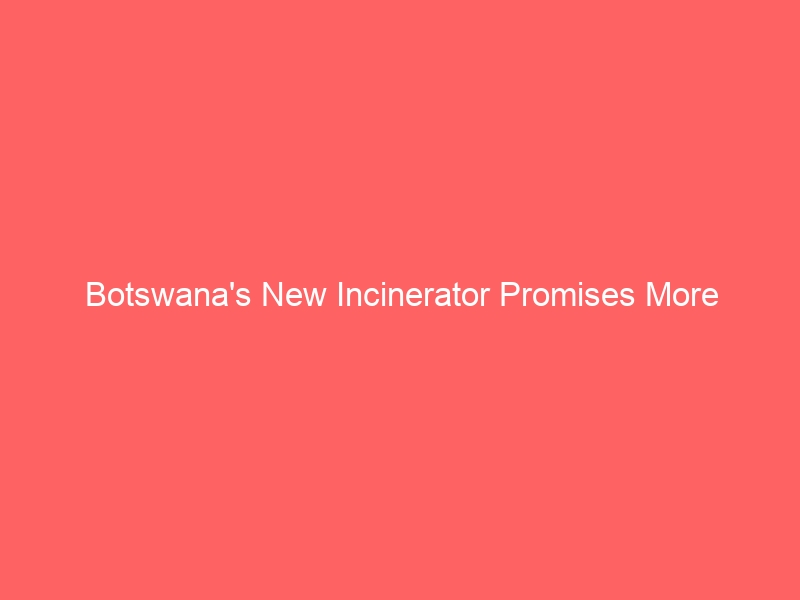Botswana, a landlocked country in Southern Africa, has been working towards improving its waste management systems in recent years. The latest initiative in this effort is the construction of a new incinerator that promises more efficient waste management for the country. This new incinerator is expected to play a key role in addressing the growing waste management challenges faced by Botswana.
The need for a new incinerator in Botswana stems from the increasing amount of waste being produced in the country. Rapid urbanization and population growth have led to a rise in the generation of waste, which has put immense pressure on the existing waste management infrastructure. Additionally, the improper disposal of waste has resulted in environmental pollution and health hazards for the public.
Recognizing the urgency of the situation, the government of Botswana, in collaboration with international partners, has embarked on a project to construct a new incinerator. The project aims to improve waste management practices and reduce the environmental impact of waste disposal in the country. The new incinerator is expected to provide a more sustainable and efficient solution for managing the growing volume of waste in Botswana.
The new incinerator is equipped with advanced technology that allows for the safe and effective incineration of various types of waste. This includes medical waste, municipal solid waste, and industrial waste. The incinerator is designed to meet international environmental standards and will adhere to strict emission regulations to minimize its impact on the environment.
One of the key features of the new incinerator is its energy recovery capabilities. The incineration process will generate heat, which can be harnessed to produce electricity. This energy recovery system will not only reduce the reliance on fossil fuels for power generation but also contribute to the sustainable use of resources. It is a step towards a circular economy where waste is utilized to generate energy, closing the loop on waste management.
Furthermore, the new incinerator is expected to significantly reduce the volume of waste that ends up in landfills. By incinerating waste, the incinerator will minimize the need for landfill space and help alleviate the strain on existing landfill sites. This will also mitigate the risk of groundwater contamination and reduce the release of greenhouse gases from decomposing waste in landfills.
The new incinerator is poised to revolutionize waste management practices in Botswana and set a new standard for sustainable waste management in the region. With its state-of-the-art technology and energy recovery capabilities, it presents a viable solution to the waste management challenges faced by the country.
FAQs:
Q: Will the new incinerator contribute to air pollution?
A: No, the new incinerator is designed to meet international emission standards and will employ advanced pollution control technologies to minimize its impact on the environment.
Q: What types of waste will the incinerator be able to handle?
A: The incinerator is designed to handle various types of waste, including medical waste, municipal solid waste, and industrial waste.
Q: Will the incinerator generate electricity?
A: Yes, the incinerator is equipped with an energy recovery system that will harness the heat generated during the incineration process to produce electricity.
Q: How will the new incinerator benefit the environment?
A: The new incinerator will reduce the volume of waste sent to landfills, minimize the risk of groundwater contamination, and contribute to the sustainable use of resources through energy recovery.
Q: What steps are being taken to ensure the safe operation of the new incinerator?
A: The government of Botswana is working closely with international partners to ensure that the new incinerator meets international environmental and safety standards. Stringent monitoring and regulatory oversight will be in place to guarantee safe and responsible operation.








